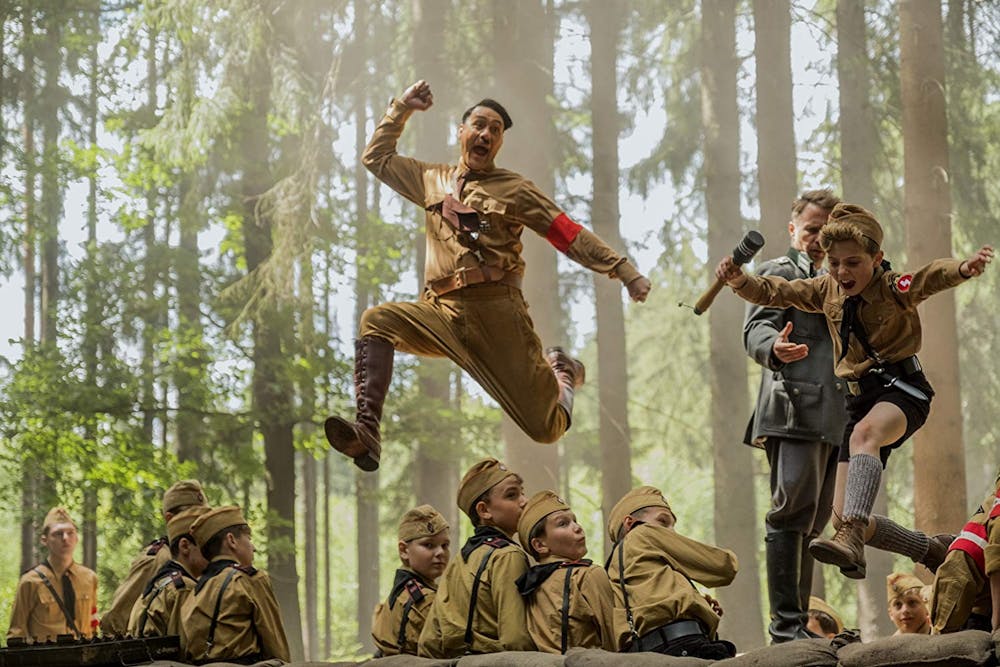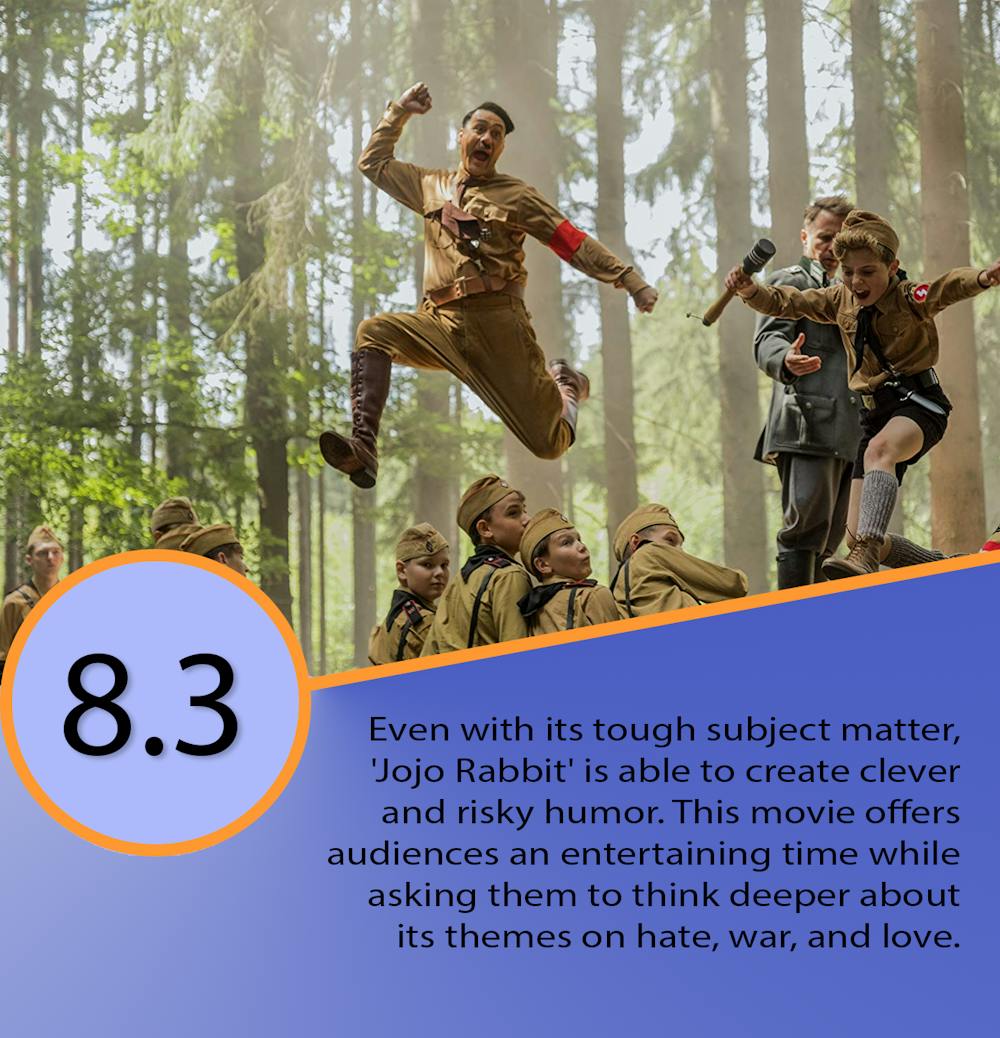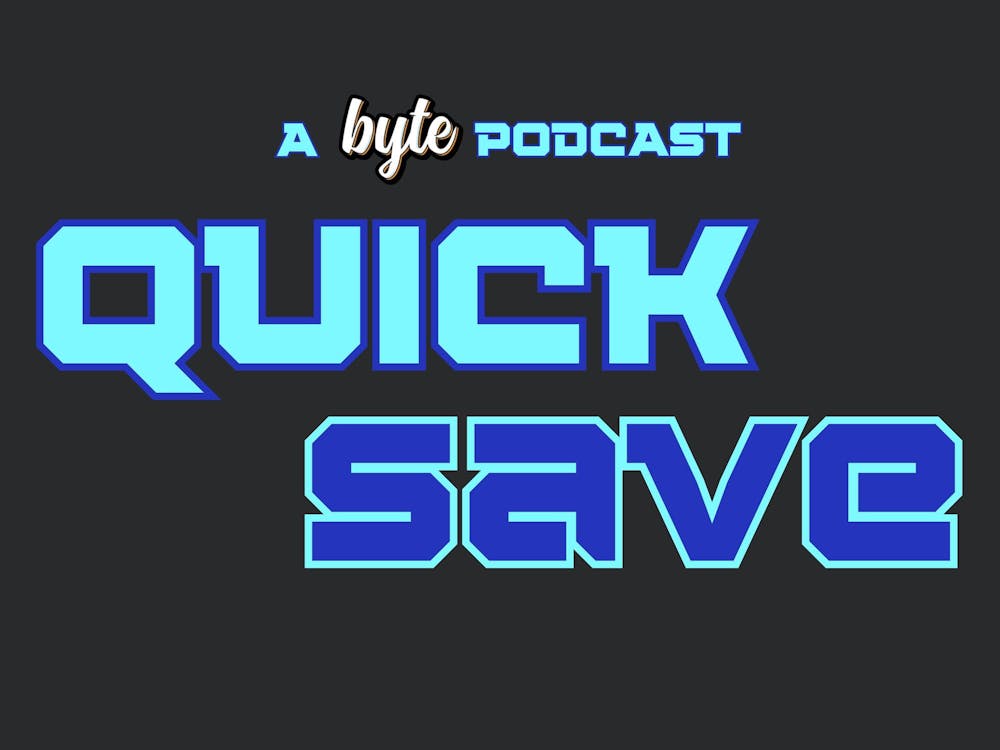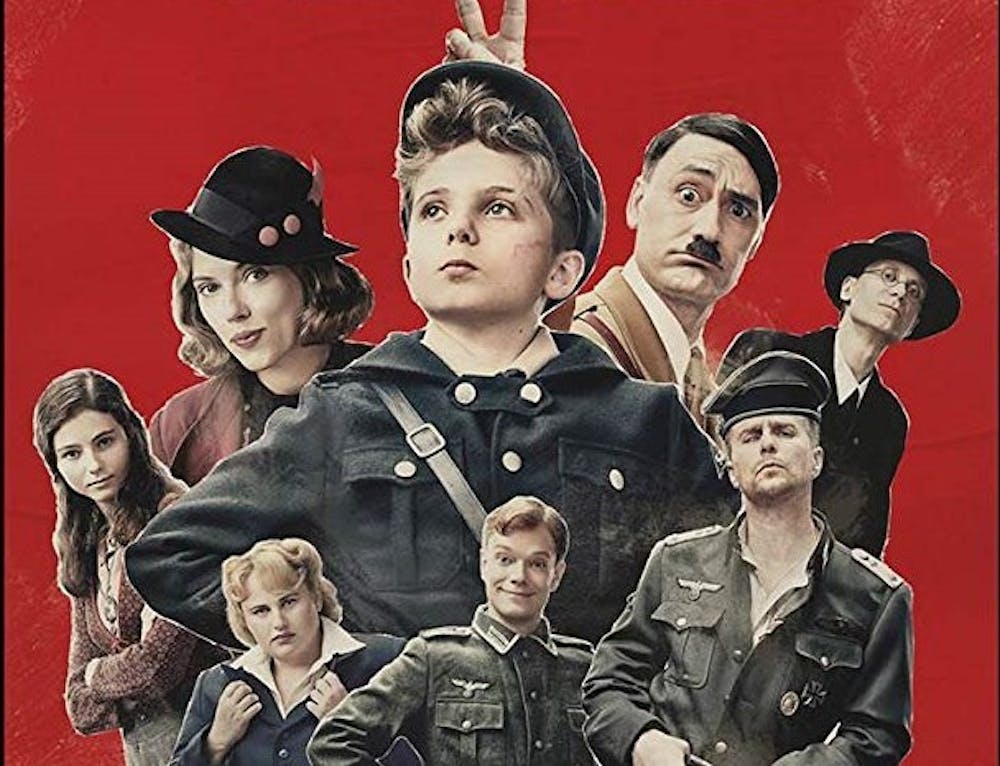To start off, Jojo Rabbit is definitely one of the best, funniest, and most touching films of the year. Written and directed by Taika Waititi, the same man behind What We Do in the Shadows, Hunt for the Wilderpeople, and Thor: Ragnarok, Jojo Rabbit does the impossible by using World War II, Hitler, and the Nazis as the basis for a heartwarming comedy. People may think a movie like this is disrespectful, but it presents the material in a way that shows how awful the Nazis and their beliefs were while wrapping it all up in a fun, playful package. Digging through the layers of this movie, the audience will find the message that hate can corrupt people and lead them to do terrible things.
Jojo Rabbit follows a young boy named Jojo (Roman Griffin Davis), a member of Hitler’s youth whose imaginary friend is none other than Hitler himself. When he is unable to kill a rabbit in order to prove himself as a brave and ruthless killer, he earns the nickname Jojo Rabbit. Following a training accident, Jojo is left with injuries that prevent him from fighting in the war. He soon discovers that his mother, Rosie (Scarlett Johansson), is hiding a Jewish girl named Elsa (Thomasin McKenzie) in their home, which leads to conflict between Jojo and his mother, in addition to an internal conflict as Jojo questions what he believed was right.
A special and unique movie

Image from IMDb
Film lovers will appreciate how different Jojo Rabbit is from other movies. The only movie you could kind of relate this to is Inglorious Basterds, as both films poke fun at World War II, but it’s a very loose comparison. Because Jojo Rabbit takes such a sensitive topic and turns it into a comedy, it makes the movie feel a little more rebellious and dangerous than most films that deal with the same subject matter. The movie makes jokes about things most comedians would steer away from, but Waititi goes straight for the throat. He doesn’t go over-the-top with his acting, and I found the potentially-offensive jokes he works into the script to be tasteful.
This movie wouldn’t work without its terrific performances. It would be very easy for Waititi’s portrayal of Hiter to come off as jarring and distasteful, but he is able to have fun with the character while still showing what a horrible person Hitler was. At times, having Hitler be the imaginary friend to Jojo almost feels like a gimmick, but they’re still able to tie his character into the overall story and use him to develop Jojo further without making it feel tiresome. Another great thing about Waititi’s Hitler is how he’s able to stand out as a very comical character yet he doesn’t overshadow the terrific performance by Roman Griffin Davis as Jojo. While this is Davis’ first professional acting job, he steals the spotlight and outshines the rest of the cast, which is saying a lot when you have talents like Scarlett Johansson, Sam Rockwell, Rebel Wilson, and Waititi. Davis is able to keep up with Waititi’s style of humor while bringing depth and wit to the character of Jojo. The young actor also has a natural charisma that makes you sympathize with him and want to see him go down a better path than the one he was placed on.
A different look at World War II

Image from IMDb
Having the story told through the eyes of a child helps the audience to sympathize with the protagonist, despite the fact that he believes in such terrible things. If the main character were older, it would have been harder to like the character and want to see him succeed. The movie also makes the audience question whether or not we should feel sympathy for a character like this and whether or not someone like him is actually a bad person. Additionally, the relationship between Jojo and Elsa is excellent. You buy into their relationship and become invested in seeing where it goes, thanks mainly to Davis’s and McKenzie’s on-screen chemistry.
Jojo’s and Elsa’s relationship also helps drive home themes about how damaging hate can be. Their relationship doesn’t feel forced but rather feels natural and takes the movie to deeper levels. These themes about the damaging effects of hate are carried over into the comedy of the movie in a clever way. The jokes help show the terrible beliefs of the Nazis without going into disrespectful territory. The comedy of the film in general also mixes well with the drama, as it lightens the mood of the subject matter and helps to balance out the dramatic themes of the movie.

Image from IMDb
Though I have many praises, Jojo Rabbit is not without flaws. The main problem with the movie is that it tries to be both family-friendly and mature at the same time. There are times when it feels like Waititi is giving a message to kids, but there are also aspects that clearly show this is an adult-oriented film. For example, Jojo has a friend, Yorki, who shows up throughout the movie, and they share a scene together that feels like it’s speaking to kids, but then the scene ends with the two making a lewd joke. This throws off the tone of a family-friendly movie big time. Scenes like this, where the dichotomy of family-friendliness and mature content is particularly notable, make the movie feel a bit jarring at times.
Jojo Rabbit also struggles with development of its minor characters. Jojo, Elsa, and Rosie are all well-developed, and the audience grows to like all three of them. However, Jojo’s friend Yorki (Archie Yates) and Captain Klenzendorf (Sam Rockwell) feel underutilized. Jojo and Klenzendorf get a touching moment together toward the end, but it didn’t work as well as it could have if his character had been developed more. The same can be said with Yorki. He doesn’t really have any purpose in the film besides showing up randomly in scenes for a quick joke. Unlike Klenzendorf, however, he didn’t get to have a touching moment with Jojo. Despite all these things, Jojo Rabbit is still a hilarious and entertaining movie that dives deep with its themes and storytelling, leaving audiences feeling satisfied.

Images: IMDb
Featured Image: IMDb
For more entertainment related content, visit us at Byte BSU!



















